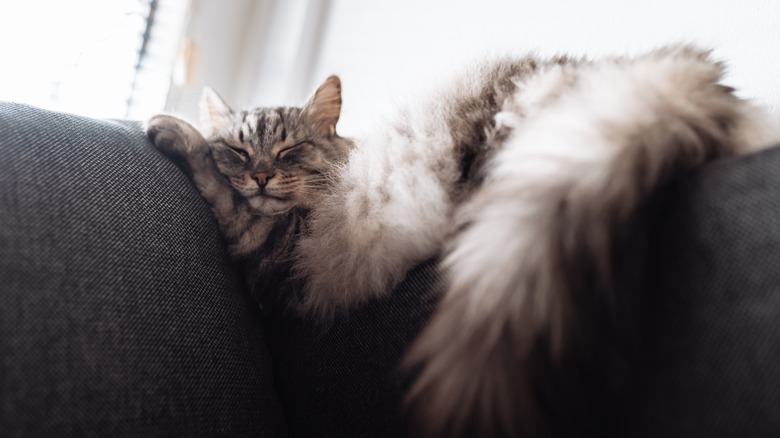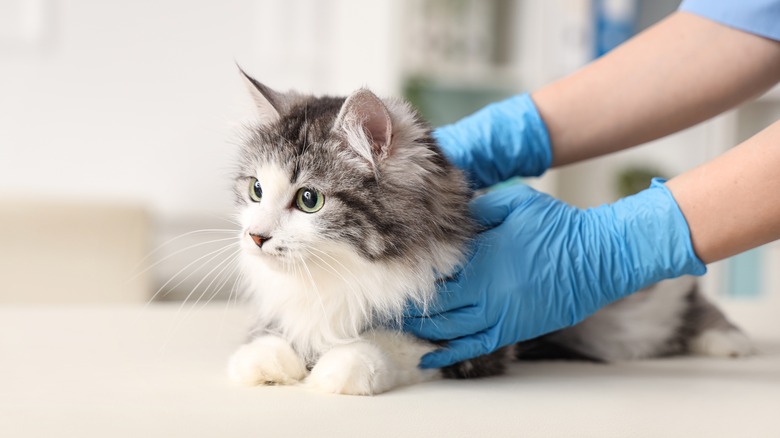Why Your Cat's Rear End Smells Fishy (And What To Do About It)
Since cats groom themselves regularly, they don't typically emit foul odors, unless they spend time outdoors. However, even an indoor cat can smell funky at times — specifically their rear ends. Yes, excrement and flatulence can obviously leave a temporary, residual stench, but a fishy stench can linger for much longer, leaving you wondering about the cause.
Although rare, a fishy smell can be the result of a bacterial urinary tract infection. Per Pet MD, these are more likely to occur in older cats with certain medical ailments. Aside from a fishy odor, some signs your cat is dealing with a UTI include fatigue and producing a decreased volume of urine. If you suspect your cat's smelly tush is the result of a UTI, seek immediate veterinary care. A full course of antibiotics should cure the infection and the smell.
However, a much more likely reason that your cat's tush smells like fish is clogged anal glands. Anal glands are small sacs located on each side of a cat's anus, beneath the skin. These pouches produce a fluid with a potent, foul smell that's usually released naturally in the cat's stool. However, sometimes the glands become impacted and don't empty themselves as well as they should, resulting in discomfort and a foul stench. Other tell-tale signs your cat is dealing with this biting or obsessively grooming their anal area or dragging their butt across the floor. The good news is a visit with your vet or local cat groomer can resolve the issue quickly, providing some relief for your feline friend and your nose.
Clear impacted anal glands to get rid of fishy odors
It's important to address impacted anal glands as soon as possible. If your cat's anal glands remain blocked, it could result in an infection or abscesses. The act of emptying a cat's anal glands is referred to as "expressing." The process is relatively quick, and can be done externally or internally, usually in under a minute. An external anal gland expression involves gently pinching the glands on either side of the anus together. An internal expression, meanwhile, requires gently inserting a finger into the anus. Both methods should result in the release of a soft, fluid-like discharge from the anus. Though it might seem straightforward, it's best to consult a professional for anal gland expression, as it can be quite difficult. Plus, you don't want to accidentally injure your cat. Many vets and groomers don't require an appointment for anal gland-related services, so your feline friend may be able to get same-day relief.
Veterinarians typically charge $25 or more for the service, while groomers charge as little as $8 and up, though this may vary based on location. During the visit, it helps to have someone hold the cat during the expressing, especially if the cat is skittish or dislikes having their rear end touched. Once the glands have been emptied, the fishy odor should subside. However, if you notice the smell again later, it could be a sign of an anal gland disorder or other problem. Or, your cat may just need a diet change. Talk to your veterinarian about your cat's anal glands and ask for their recommendations, such as making anal gland expression a regular part of a routine vet exam. Keep in mind that though the process only takes 30 second to complete, they may charge an additional fee for this service. A groomer can also express a pet's anal glands, either as an add-on service or standalone service.

